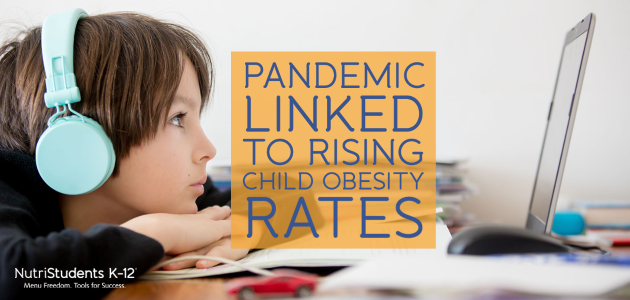
The COVID-19 pandemic has been associated with weight gain among adults, but little was known about the pandemic’s effect on the weight of children and teens. A new study published in the Journal of the American Medical Association (JAMA) indicates that childhood obesity rose significantly during the pandemic.
The research from Kaiser Permanente Southern California found the greatest change was among children ages 5 to 11, who gained an average of more than five pounds, adjusted for height. For the average 5-year-old, this equates to a 12.5 percent weight gain. For the average 11-year-old, it’s a 6 percent weight gain. Prior to the pandemic, 36 percent of this age range were considered overweight or obese and that increased to over 45 percent.
What accounts for the weight gain? It’s a culmination of several factors: changes in access to food, less regular physical activity, and an increased amount of sedentary screen time from remote learning.
When children are attending school in person, they have access to regular school meals and more opportunities for physical activity. Studies show that school meals are, on average, healthier than what children bring from home. That paired with consumer purchasing patterns during the pandemic indicating an increase in ready-to-eat foods high in calories, saturated fat, and added sugars and unrestricted access to food all day long, are likely the cause of the weight gain.
This research supports the significant role that school meals play in the battle against childhood obesity, during a pandemic or in “normal” times. For decades, school meals have been helping to prevent hunger and provide nutrients that kids need to learn and thrive. The COVID-19 pandemic has exacerbated hunger and highlighted how critical school meals programs are for ensuring families have access to healthy food.
Students typically consume up to 50 percent of their daily calories at school, so healthy cafeteria meal and snack standards that are in place are essential to support a healthy body weight. These healthier nutrition standards are linked with lower rates of obesity, particularly among children from low-income families.
Our latest issue of Cafeteria Connection, our newsletter for you to send to parents, addresses these nutrition guidelines school meals must follow. If you don’t already subscribe to Cafeteria Connection, sign up here and get instant access to this and all past issues of the newsletter.